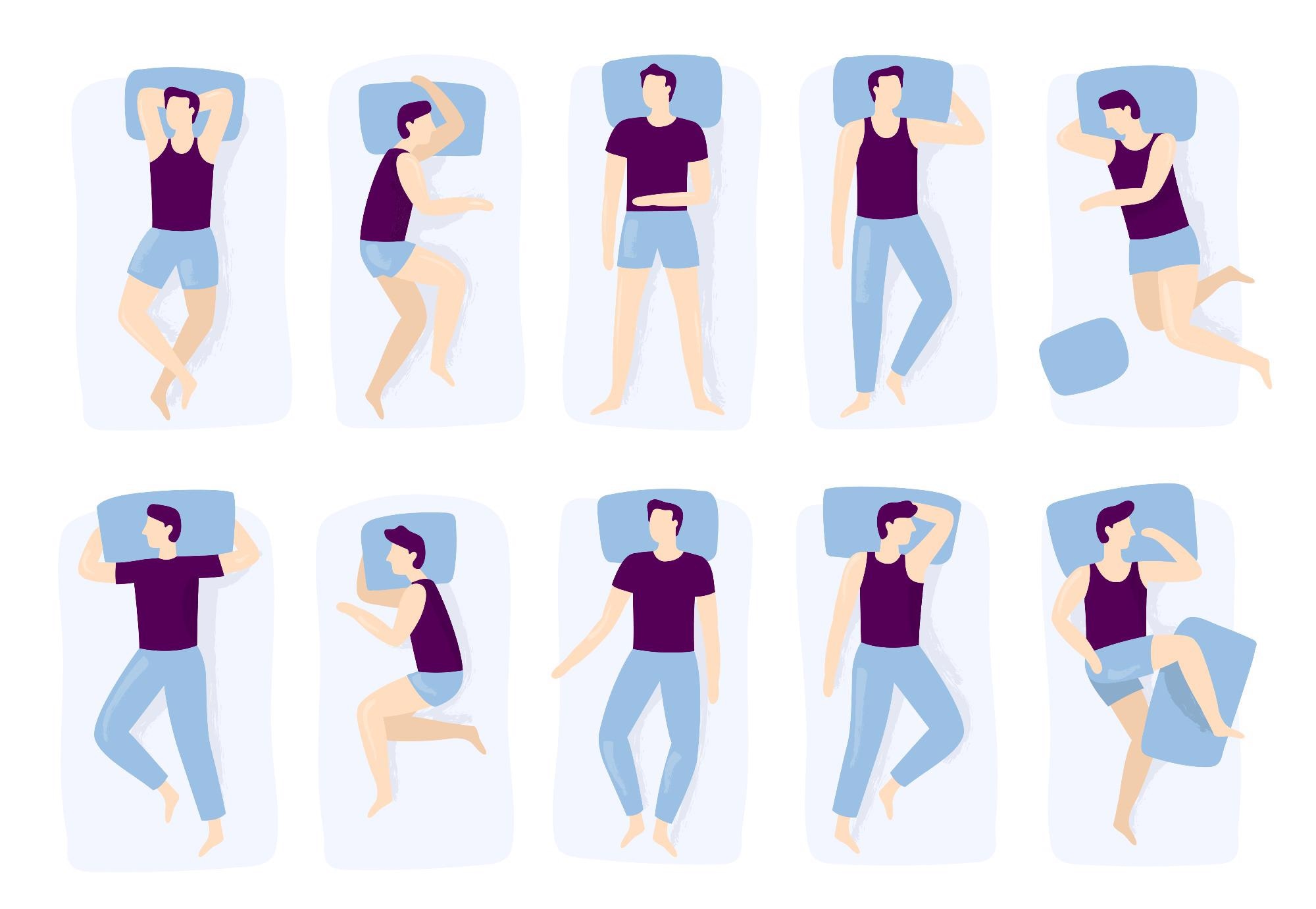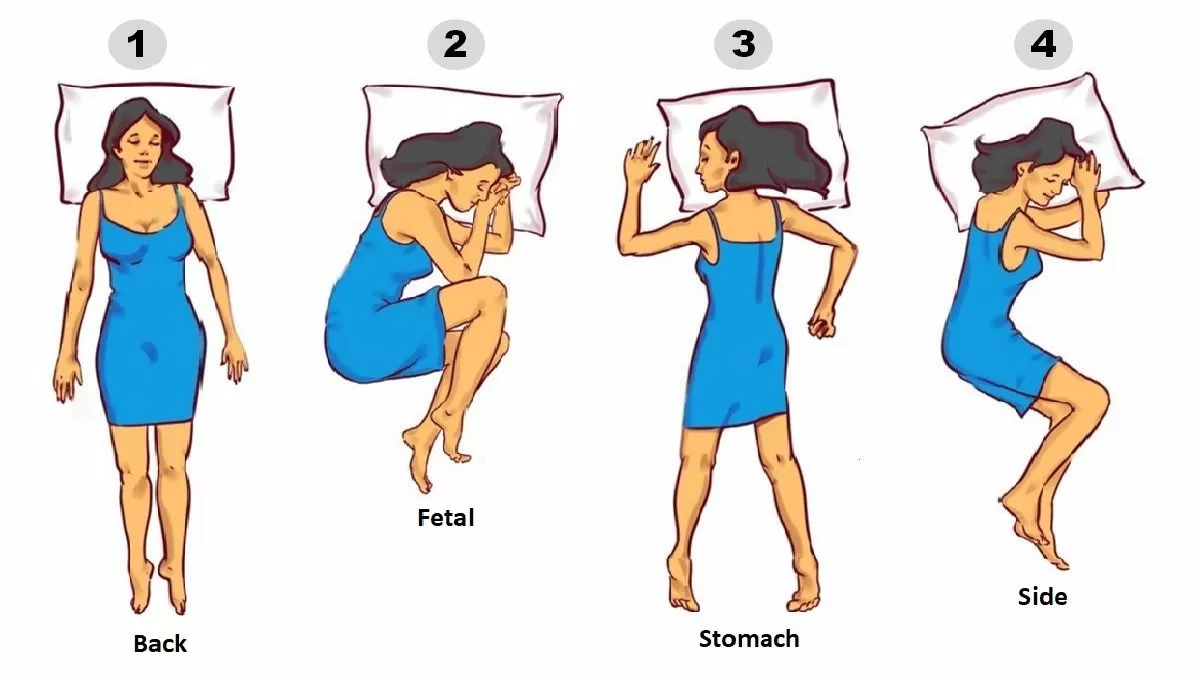With the busy pace of life today, getting quality sleep has become a luxury. However, sleep is essential for maintaining both physical health and mental well-being. From enhancing cognitive function to improving mood and reducing stress, good-quality sleep is the cornerstone of a healthy lifestyle. As we approach 2025, new insights, technologies, and lifestyle changes can help improve sleep quality more effectively than ever. Here, we’ll explore some essential tips for getting a better night’s rest and setting the foundation for a healthier, more rested you.
1. Understanding the Importance of Quality Sleep

Sleep is more than just resting; it’s a period during which the body heals and the brain processes information from the day. Studies have shown that adults need around 7-9 hours of quality sleep each night. Quality sleep allows the body to go through multiple cycles of deep and REM (rapid eye movement) sleep, critical for cell repair, emotional regulation, and memory consolidation. Poor sleep quality, on the other hand, has been linked to a variety of health issues, including obesity, heart disease, diabetes, and mental health disorders.
With 2025 fast approaching, understanding how to maximize sleep quality can empower you to improve your well-being and daily performance.
2. Embracing Sleep-Tracking Technology
The advancement of sleep-tracking technology allows individuals to understand their sleep patterns in real-time. Wearable devices, smartwatches, and even smartphone apps are now equipped with sensors that monitor sleep stages, heart rate, and body movements to provide accurate insights into sleep quality.
Benefits of Sleep Tracking
- Personalized insights on sleep cycles and disturbances.
- Identify sleep disorders like sleep apnea or insomnia.
- Track progress and adjustments over time for better sleep habits.
Recommended Devices
- Oura Ring: A smart ring that tracks sleep quality, heart rate, and body temperature.
- Apple Watch and Fitbit: Popular wearables with comprehensive sleep-tracking features.
- SleepScore Max: A non-wearable device that uses sonar technology to measure sleep patterns accurately.
Top Travel Tips for 2025: Maximize Your Adventures with Minimal Hassle
3. Setting a Consistent Sleep Schedule
Consistency is one of the cornerstones of good sleep hygiene. Going to bed and waking up at the same time every day helps regulate the body’s internal clock, known as the circadian rhythm. This internal clock signals the body when to release sleep-inducing hormones and when to wake up, making it easier to fall asleep and wake up feeling refreshed.
Tips for a Consistent Schedule
- Create a bedtime routine that signals to your body it’s time to wind down.
- Avoid naps late in the afternoon, as they can disrupt nighttime sleep.
- Set a “sleep alarm” that reminds you to start preparing for bed about an hour before.
4. Optimize Your Sleep Environment
Creating a sleep-friendly environment is essential for improving sleep quality. Studies show that environmental factors, including room temperature, lighting, and noise, can influence how quickly you fall asleep and how well you stay asleep.
Steps to Optimize Your Sleep Space
- Control Light Exposure: Use blackout curtains or a sleep mask to eliminate light, which can interrupt sleep. Reducing blue light exposure from screens before bed also supports better sleep.
- Adjust Room Temperature: The ideal room temperature for sleep is between 60-67°F (15-19°C). Cooler environments signal to your body that it’s time to rest.
- Minimize Noise: Use earplugs or a white noise machine to mask disruptive sounds. Alternatively, apps like Calm and Headspace offer soothing soundscapes designed to aid sleep.
5. Consider a High-Quality Mattress and Pillows

Mattresses and pillows play a crucial role in how well you sleep. If your mattress is over seven years old, it may be time to consider an upgrade. Memory foam and hybrid mattresses have gained popularity due to their ability to adapt to body contours and reduce pressure points. Selecting the right pillow that aligns with your sleep position (side, back, or stomach) is also essential for minimizing discomfort.
Key Features to Look For
- Breathability: Look for materials that wick away moisture, especially if you’re a hot sleeper.
- Firmness Level: Choose firmness based on your comfort and support needs. Side sleepers typically benefit from a medium-firm mattress, while back sleepers may prefer something firmer.
- Adjustable Pillows: Opt for pillows that can be customized in terms of loft or firmness, like shredded memory foam or adjustable fill options.
6. Limit Caffeine and Alcohol Intake
Caffeine and alcohol can interfere significantly with sleep quality. Caffeine stimulates the nervous system, which can delay the onset of sleep. Although alcohol might make you feel sleepy initially, it disrupts the sleep cycle, causing frequent awakenings throughout the night.
Tips for Managing Intake
- Limit caffeine intake after midday. If you enjoy hot drinks in the evening, consider herbal teas with no caffeine.
- Limit alcohol consumption to moderate amounts and avoid drinking at least 3-4 hours before bed.
- Hydrate wisely: Drinking too much water before bed can lead to frequent trips to the bathroom, disrupting sleep.
7. Incorporate Relaxation Techniques
Relaxation techniques such as meditation, deep breathing, and progressive muscle relaxation can prepare your mind and body for sleep by reducing stress and lowering cortisol levels.
Popular Techniques
- Mindfulness Meditation: Apps like Insight Timer and Headspace offer guided meditations to help calm the mind before sleep.
- 4-7-8 Breathing Technique: Inhale for 4 seconds, hold for 7, and exhale for 8. This breathing pattern can help reduce anxiety and prepare the body for sleep.
- Progressive Muscle Relaxation: Starting from your toes and moving upward, tense and then relax each muscle group.
8. Get Regular Exercise
Physical activity has numerous benefits, including improving sleep quality. Engaging in at least 30 minutes of moderate exercise daily can help regulate the sleep-wake cycle, reduce stress, and alleviate symptoms of insomnia. However, it’s important not to exercise too close to bedtime, as the stimulation can interfere with falling asleep.
Recommended Activities
- Morning and afternoon exercise: Boosts energy levels and prepares the body for restful sleep later in the day.
- Yoga and stretching: Evening sessions of gentle yoga or stretching can promote relaxation without overstimulating.
- Avoid vigorous workouts within three hours of bedtime to prevent sleep disruption.
9. Nutrition and Sleep: Eat Right to Sleep Tight
Nutrition plays a significant role in sleep quality. Foods rich in tryptophan, magnesium, and melatonin can promote sleepiness, while heavy or spicy foods close to bedtime can cause indigestion and disrupt sleep.
Sleep-Friendly Foods
- Bananas and almonds: Rich in magnesium, which can help relax muscles.
- Warm milk and turkey: High in tryptophan, an amino acid that promotes sleepiness.
- Cherries: Natural source of melatonin, a hormone that regulates sleep.
10. Embrace Natural Light Exposure

Natural light exposure, especially in the morning, helps regulate the body’s circadian rhythm. Sunlight triggers the brain to reduce melatonin production, helping you wake up and stay alert throughout the day. Spending time outside during daylight hours can make it easier to fall asleep at night.
Ways to Increase Light Exposure
- Get outside for at least 15-30 minutes in the morning.
- Keep your blinds open during the day to allow natural light to enter your home or office.
- Consider light therapy in the winter months if natural sunlight is limited.
11. Managing Stress for Better Sleep
Stress is one of the primary causes of sleep disturbances. Chronic stress can make it difficult to unwind and lead to disrupted sleep patterns. In 2025, integrating effective stress-management practices into your daily routine can improve sleep quality and overall well-being.
Effective Stress Management Practices
- Journaling: Writing down thoughts or worries before bed can help clear the mind.
- Therapeutic hobbies: Activities like painting, knitting, or reading can help ease the mind.
- Seek support: Talking to friends, family, or a mental health professional can also alleviate stress.
12. Try Supplements Wisely
Eco-Friendly Living: Sustainable Tips for 2025 You Can Start Today
Some people find that supplements when used responsibly, can improve sleep quality. Melatonin, valerian root, and magnesium are popular natural remedies. However, it’s best to consult with a healthcare provider before beginning any new supplements, as they can have different effects depending on individual health conditions.
Common Sleep Supplements
- Melatonin: Regulates the sleep-wake cycle and is beneficial for people with insomnia or jet lag.
- Magnesium: Aids muscle relaxation and helps reduce stress.
- Valerian Root: An herbal supplement known for its calming effects, though it can take a few weeks to show results.
13. Limit Screen Time Before Bed
Exposure to blue light from screens (phones, tablets, TVs) can interfere with melatonin production, making it difficult to fall asleep. Reducing screen time an hour before bed can significantly enhance sleep quality.
Blue Light Management Tips
- Enable “Night Mode” on devices to reduce blue light.
- Use blue light-blocking glasses if you must work late on screens.
- Engage in screen-free activities like reading a book or listening to an audiobook before bed.
Mastering Minimalism in 2025: Declutter Your Life with These Simple Tips
Improving sleep quality is a holistic journey involving lifestyle adjustments, environment optimization, and the adoption of new habits. By implementing these tips, you can foster better sleep habits, leading to improved physical and mental health in 2025 and beyond. Whether you choose to embrace new technologies or focus on relaxation techniques, these strategies can support more restful and rejuvenating sleep—ultimately empowering you to tackle each day with more energy and resilience.



